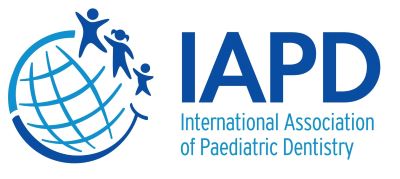IAPD - International Association of Paediatric Dentistry |
|
Update on COVID-19 for Our Members March 30, 2020 |
|
The IAPD Science Committee would like to share with you some information related to dental practice that can be derived from an excellent resource “International Pulmonologist’s Consensus on COVID-19, Chief Editors Dr. Tinku Joseph (India) and Dr. Mohammed Ashkan (Iran). The full document can be found here. |
|
Points that may be of interest to oral health professionals:
|
|
- Patients are thought to be most contagious when they are symptomatic.
- COVID-19 is released in the respiratory secretions when an infected person coughs, sneezes or talks. These droplets can infect others if they make direct contact with the mucous membranes.
- Infection also can occur by touching an infected surface, followed by touching eyes, nose or mouth, but this is not thought to be the main way the virus spreads.
- Respiratory secretion droplets typically do not travel more than six feet (two meters) and do not linger in the air. However, precautions are needed with high risk procedures such as aerosolization of droplets.
- Respirators (N95, FFP2, or PAPRs [Powered, Air Purifying Respirators]) should be reserved for aerosol generating procedures (Tracheal intubation, non-invasive ventilation, tracheostomy, bronchoscopy and cardiopulmonary resuscitation). (Note: this may include dental procedures that use: air/water spray, nitrous oxide, ultrasonic instruments, high-speed hand pieces and suction devices).
- Surgical masks are primarily designed to stop the wearer from spreading their germs when coughing/sneezing/speaking.
- Eye protection when doing procedures should include a good seal with the skin of the face
- Regular hand washing is essential, but hands get “dry” and need to be moisturized to make them less vulnerable to infection.
- If soap and water are not available, use an alcohol-based hand sanitizer with at least 60% alcohol.
- The following items need regular disinfection: cell phone, computer keyboard and mouse, house and car keys, re-usable water bottles, car steering wheel, door handles.
- The following items needs regular disinfection: cell phone, computer keyboard and mouse, house and car keys, re-usable water bottles, car steering wheel, door handles.
** Please note: In countries where COVID-19 is active, the IAPD advocates that dental practices be limited to emergencies. When possible, emergency dental care be addressed with antibiotics, pain medication, and temporary fillings; or referred to hospitals that have “on call” dental staff. |
|
Association Management18 Avenue Louis-Casai 1209 Geneva, Switzerland Tel: +41 22 5330 948 IAPD@iapdworld.org |
|
|





